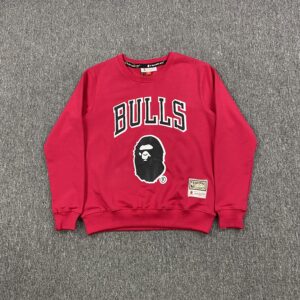In recent years, a new phenomenon has emerged in revenge brand the world of branding – the rise of revenge brands. These are companies that disrupt traditional industries, challenge established norms, and carve out a unique identity in the market. From fashion to technology, revenge brands have made their mark by appealing to a younger, more discerning consumer base. But what exactly is a revenge brand, and how do they succeed in an increasingly competitive landscape?
Introduction to Revenge Brand
At its core, a revenge brand is a company that defies convention and disrupts established markets through innovation, authenticity, and a rebellious attitude. Originating from the desire to challenge the status quo, these brands often emerge as underdogs, seeking to overthrow industry giants and reshape consumer perceptions.
The Rise of Revenge Branding
Several factors have contributed to the rise of revenge branding. One significant factor is the democratization of technology and access to information. With the advent of social media and e-commerce platforms, smaller brands now have the opportunity to reach global audiences with minimal resources.
Key Characteristics of Revenge Brands
Revenge brands share several key characteristics that set them apart from traditional competitors. These include a unique selling proposition (USP) that resonates with consumers, a willingness to challenge industry norms, and a commitment to authenticity in branding and marketing efforts.
Creating a Successful Revenge Brand
To create a successful revenge brand, companies must first identify their target market and understand their needs and preferences. This involves conducting market research and competitor analysis to identify gaps in the market that can be exploited.
Challenges Faced by Revenge Brands
Despite their success, revenge brands face several challenges in maintaining their momentum. These include competition from established players, the need to maintain authenticity amid rapid growth, and the risk of alienating consumers through controversial marketing tactics.
Case Studies: Notable Examples of Revenge Brands
Several brands have achieved success by adopting a revenge brand strategy. One such example is Supreme, a streetwear brand that has built a cult following by leveraging scarcity and exclusivity in its marketing efforts.
The Impact of Revenge Branding on Consumer Behavior
Revenge branding has a significant impact on consumer behavior, often appealing to younger consumers who seek authenticity and individuality in the brands they support. By challenging industry norms and embracing a rebellious attitude, revenge brands can cultivate a loyal following among their target audience.
Ethical Considerations in Revenge Branding
As revenge brands continue to gain prominence, ethical considerations become increasingly important. Companies must balance profitability with responsibility, avoiding exploitation and controversy while maintaining their authenticity and rebellious spirit.
Future Trends in Revenge Branding
Looking ahead, revenge branding is likely to continue evolving as consumer preferences shift and technology advances. Brands that can adapt to these changes while staying true to their core values will be best positioned to succeed in the future.
Conclusion
In conclusion, revenge branding represents https://www.wisdomtides.com/ a significant shift in the way companies approach marketing and branding. By challenging industry norms, embracing authenticity, and appealing to younger consumers, revenge brands have disrupted traditional markets and reshaped consumer behavior. However, as they continue to grow and evolve, it’s essential for these brands to navigate the ethical considerations and challenges that come with their newfound success.





